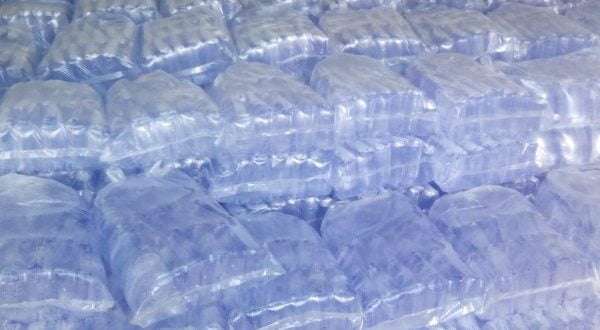The Ghana Food and Drugs Authority (FDA) has urged the public to patronize only registered sachets and bottled water manufactured in Ghana.
According to the Authority, Ghanaians must report any unregistered sachet and bottled water at any of its nearest offices across the country.
“The public is strongly advised to patronize only registered sachets and bottled water manufactured in Ghana that bear the FDA product registration numbers.”
Food and Drugs Authority
Contained in a statement signed by the Chief Executive Officer of the FDA, it debunked claims that sachet water on the market is contaminated with faecal matter. It revealed that the outcome of its regular surveillance of sachet water producers is not in conformity with observations by the Ghana Statistical Service.
“The Authority wants to remind the public of its responsibility to protect consumers, as mandated by the Public Health Act, 2012 (ACT 851). With regard to packaged water (bottled and sachet), the FDA ensures this through the licensing of the manufacturing premises and the registration of these products.”
Food and Drugs Authority
The FDA assured of regular inspection of manufacturing facilities premised on the Authority’s guidelines. It noted that the Authority is committed to inspecting packaging materials to ensure they meet their respective standards.
Inspection of sachet and bottled water
Inspection includes E. coli, total coliforms, aerobic plate count, Pseudomonas aeruginosa, Streptococcus faecalis and Clostridium perfringens. The FDA stressed that its laboratory facilities conduct periodic water safety tests and product quality analyses on packaged water on the market.
“The inspection covers the starting material (water) to packaging materials to ensure they meet their respective Ghana standards: and the finished products to meet the requirements of GS175-1:2002 (for drinking water) and GS220:2014 (for mineral water).”
Food and Drugs Authority
All inspections, the Authority emphasized, are done in accordance with the current Codes of Good Manufacturing Practices (GMP) where end products are released in accordance with the above-stated specifications.
“The FDA also ensures producers comply with the production process which includes Filtration/Reverse Osmosis which rids water sources of extraneous material, and UV sterilization for destroying deadly disease-causing microorganisms.”
Food and Drugs Authority
It will be recalled that a Multiple Indicator Cluster Survey was conducted by the Ghana Statistical Service (GSS) conducted in 2017-2018. The multiple indicator cluster survey conducted in 2017 revealed 34.1% of households in Ghana which relied on sachet water as a drinking water source had an appreciable amount of Esherichia coli, a contamination indicator.
An Assistant Statistician and Director of Field Operations at the Ghana Statistical Service, Dr Peter Takyi Peprah, observed that the development posed a public health concern and called on regulatory agencies to step up their monitoring of the production of Sachet water in Ghana. He highlighted the need to encourage the FDA to embark on thorough monitoring and supervision.
Dr Peprah urged the Authority to try their best and test on a regular basis the sources of water in the production of Sachet water so that in case the water is contaminated they will advise or close down that company doing the production.
READ ALSO: EC Must Work Closely With The NIA Moving Forward- Former Director-General Of SSNIT




















